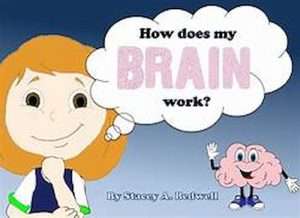“As the science of neurology advances so do the chances of us discovering, where our free will capacity resides inside the brain.” This quote is quite old but the notion that we might one day discover how free will could conceivably work has dwindled down to near nothing. Recent experiments have tested prior theories on how free will might become actionable– and it shows that our brains trick us into thinking it knows the causes of our actions even when it does not. This paragraph may be a jolt to your system. It certainly was a jolt to mine when I first ran across its implications, about a decade ago.
George (a willing participant) had electrodes temporarily implanted in the part of the brain that controls his head movements. When neurosurgeon José Delgado stimulated the electrodes by remote control, George always turned his head. Unaware of the remote stimulation, he offers a reasonable explanation for his head movement whenever asked: ‘I’m looking for my slipper.’ Or ‘I heard a noise.’ Or ‘I’m restless’, and so on.
Social Psychologist David Myers hypnotized Sarah and told her to take off her shoes when a book dropped on the floor. Fifteen minutes later a book drops, and Sarah quietly slips out of her loafers. The hypnotist then asked Sarah, ‘why did you take off your shoes?’ ‘Well, my feet are hot and tired,’ Sarah replied. ‘It’s been a long day.’
The research in the above area is, dare I say, massive.
Stimulation of small parts of the cerebral hemispheres will immediately cause a person to recall certain memories (sometimes ones they had forgotten), and surgically operating on the frontal lobes radically changes a person’s emotions and behavior. This is because our personalities and behaviors are a result of our physical brains, being subject to the cold uncaring laws of physics, rather than to the quixotic notion that we possess free will. That sounds harsh, I know.
It’s also been discovered that our decisions to act occur 0.3 seconds before we are conscious of them. Why is this, you may ask. The simplest answer is that thoughts are created (subconsciously) biochemically and then transmitted bioelectrically through physical neural pathways to the front part of the brain. A thought process has mass, and it passes through a neural pathway which also has mass. Thus, friction comes into play. Internal brain communication is not instantaneous – because it is a purely physical process and thus subject to the laws of nature – like friction (which slows down any process).
Over the years, our knowledge of neurology and cognitive psychology has continued to improve. Scientists today can actually detect the neurological basis of choice. It does not bode well for believers in free will that such experiments can detect how patients will act, moments before they are even aware of their own thoughts. In other words, biochemical circuits in our brain come first, and our feeling of having made a conscious ‘choice’ is an illusion which comes afterward. As a result of this discovery, neurology now provides the greatest argument against the concept of philosophical free will. The classical studies by Benjamin Libet, in the 1970s, provided early neurological evidence that this is the case.
Dr. Libert wired people to an electroencephalogram and then measured when they reported having a particular conscious thought about an action, and when the actual action started. Astoundingly, the latter came first: that is, subjects had actually made (unconsciously) the decision to act measurably earlier than when they became aware of it, consciously. Our conscious awareness, in a sense, is a made-up narrative that the higher cognitive functionality of our brain dictates to us and then we dictate it to the world. Our internal non-stop narrator tells us to act a certain way for a certain reason. In other words, the conscious segment of our brain is not the decider-in-chief of what actions occur and why, but rather the mere receiver of information to do so.
Let me say this at this juncture – I believe consciousness plays an active and important role in my decision-making, but the role it plays is beyond my control. So, although I believe consciousness has a purpose (i.e., it evolved for a reason – it isn’t just a byproduct of some other more necessary process), its purpose is just as deterministic as everything else science has discovered. The conscious part of me, the part who makes ‘choices’, is an interpreter which then tries to explain my actions to both me and others as well as it tries to explain other peoples’ actions to me.
You can Google the scientists I’ve referenced throughout this essay if you like – that’s why I’ve included some of their names).
When Dr. Libert used electroencephalography to look at brain activity during the process of making simple decisions, such as when to move a finger, he showed that the process which leads to any action starts about three-tenths of a second before an individual is consciously aware of it. That is, the observer is just that: an observer, not a decider. This may explain the feeling that most people have experienced at one time or another of having deliberately done something that they had not actually wanted or intended to do. I first started identifying with my observer around 12 years ago. And the observer in me is now the version of me I most identify with. He (me) observes the thought stream that is continuously streaming in my head. I don’t identify with these thoughts because I don’t create any of them consciously. Sometimes I agree with the incoming data, sometimes I don’t, but in both cases I understand that the thoughts that are thrust upon me are not of my own conscious creation.
I am going to say something here that is often confusing to folks that are new to the above research. I believe you all get or understand that the ongoing stream of automatic thoughts which are delivered to you without your assistance or beckoning are beyond your ability to control. But confusion arises whenever we are presented with thoughts, which we did not generate, but must use in order to deal with a situation which warrants decisive and immediate behavior.
As we are mulling over the details of what to do before we decide to act or not, we feel like we are freely choosing between, let’s say A and B. What all the research shows, at this point, is that the extended conversation you had with yourself while trying to decide on a course of action was all processed beforehand (subconsciously) and then delivered to you, after the fact. It’s mind boggling, I get that. But it gets worse.
There are moments of insights within all of us that are detectable up to 8 seconds before we become consciously aware of them. Let’s talk about that briefly. These moments of insight are often detectable with an EEG up to 8 seconds before a person is consciously aware of them. These are moments when our brain comes to realizations and new conclusions whenever we try and solve abstract problems. Conscious volition sits on top of this process, accepting it, but not in itself facilitating the deep thought processes behind it. Evidence continues to mount that our brains decide on issues or situations long before we know about it. The research performed subsequent to that of Dr. Benjamin Libert found that the roots of abstract decision making can be seen up to ten seconds before they become conscious.
Neurologist Jonah Lehrer argues that even when it comes to moral decisions, the physical and automatic workings of the brain are in full swing well before we are consciously able to exert any free will on the subject, and once again, the main role of our conscious self is to explain our judgement calls (both to ourselves and others). That’s right, sport’s fans – we are all just the receiver-in-chief even with regards to our morality.
It’s only at this point – after the emotions have already made the moral decision – that the rational circuitry in the prefrontal cortex is activated. People come up with persuasive reasons to justify their moral intuition. When it comes to making ethical decisions, human rationality isn’t a scientist, it’s a lawyer. This inner attorney gathers bits of evidence, with post hoc justifications and pithy rhetoric in order to make their automatic reactions seem reasonable. But this reasonableness is just a facade, an elaborate self-delusion.
Benjamin Franklin said it best in his autobiography (which I highly recommend) ‘So convenient a thing it is to be a reasonable creature since it enables one to find or make a reason for everything one has a mind to do.’
Postscript – I write essays for a few different reasons. I write them sometimes for pure entertainment value. At other times I write them for informational purposes. This post is a think piece and when I write one of these little puppies, well, let’s just say that I’m trying to stimulate some new thought processes in your noggin.
98% of all the thoughts we had today, we had yesterday. And when you consider that we average over 50,000 thoughts a day, that’s a shit ton of thoughts from the past that we carry into the present.
A think piece like this one, is designed to lower that 98% number a little. If you think about the implications that the above information conveys, then you might still be thinking about its ramifications tomorrow.
Email me at ajclarkman@hotmail.com if you ever find yourself in need of further clarification on an essay of mine published by Mr. Blosser. Facebook has the added advantage of giving writers immediate feedback on their posts. And I miss that feature, here.






